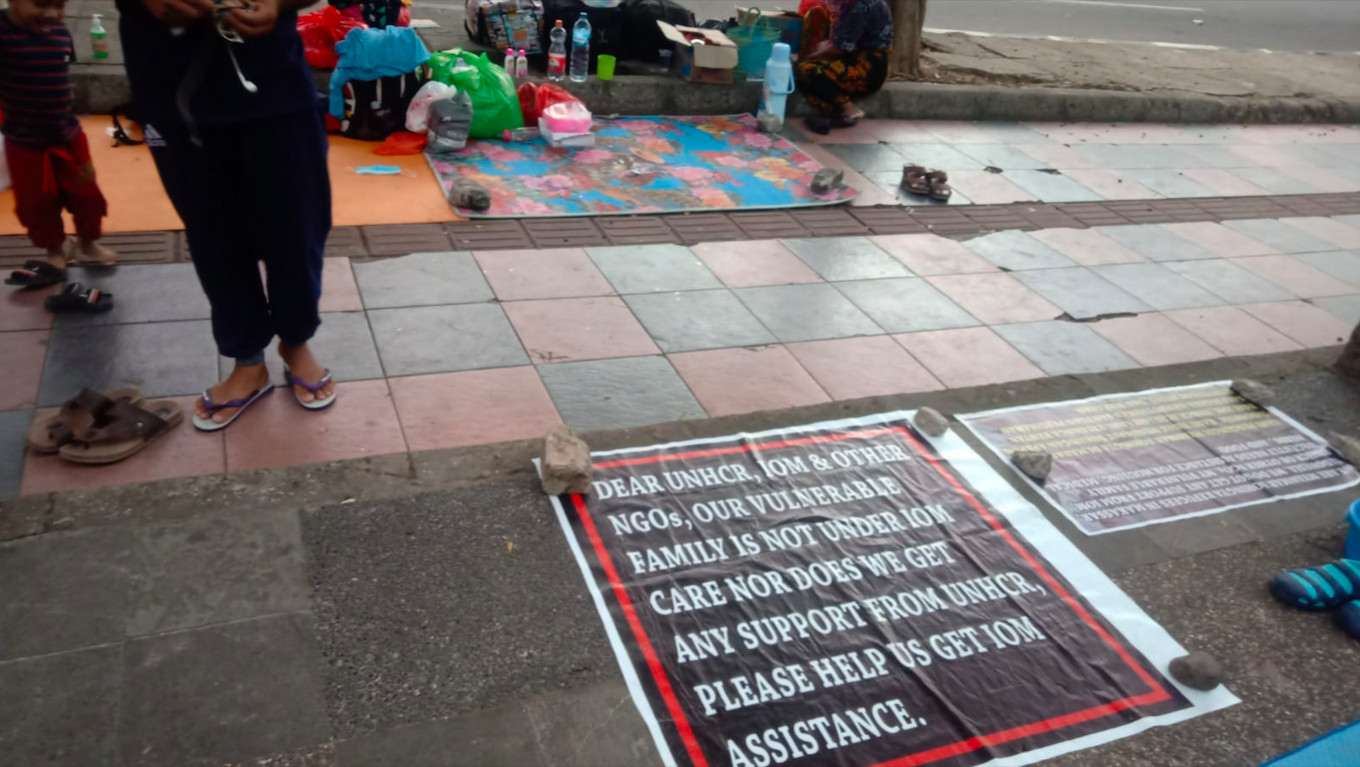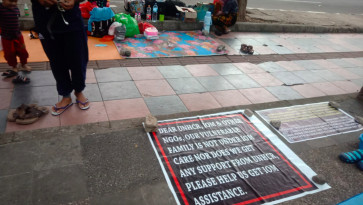Popular Reads
Top Results
Can't find what you're looking for?
View all search resultsPopular Reads
Top Results
Can't find what you're looking for?
View all search resultsGender based violence: Disaster within disaster
Even though it is difficult to prepare infrastructure that is safe and comfortable for women and children in an emergency, it is imperative that we do provide it for their own safety.
Change text size
Gift Premium Articles
to Anyone
G
ender-based violence (GBV) against women and children occurs under a variety of circumstances, including disasters. Women and children are especially vulnerable to violence in situations where they should be more protected from all forms of violence.
A disaster is defined as a serious disruption in the functioning of a community or society that causes human, material, economic and environmental losses and impacts that exceed the affected community's ability to overcome them.
According to Disaster Mitigation Law No. 24/2007, disasters are classified into three types: natural, non-natural and social. Natural disasters are those caused by natural events such as earthquakes, tsunamis, volcanic eruptions, floods, droughts, hurricanes and landslides. Non-natural disasters are those that occur as a result of non-natural events or chains of events, such as technological failures, modernization failures, epidemics and disease outbreaks. Social disasters are disasters human-caused events such as social conflicts between groups or communities and terrorism.
At disaster events, GBV incidents are not specifically recorded. However, the Women's Empowerment and Child Protection Ministry reported 57 cases of GBV, ranging from domestic violence to rape, in the aftermath of the September 2018 disaster in Palu, Central Sulawesi. Unfortunately, the data is no longer subdivided by age group.
There was no data specifically for GBV in other major disasters in Indonesia, such as the tsunami in Banten and the eruption of Mount Sinabung. In the case of the 2004 Special Region of Aceh tsunami, in particular, we can see documentation of the crime of trafficking in persons, especially children. However, there is no GBV data.
However, we have heard stories that there were many women and children who experienced sexual violence while in refugee camps. According to data from the Central Sulawesi Regional Technical Implementation Unit for Women and Child Protection (UPTD PPA), the number of incidents of violence against women and children increased following a disaster.
We should learn from the disasters that have occurred in Indonesia and elsewhere. The government and other disaster-mitigation parties should pay more attention to the special needs of women and children. Even though it is difficult to prepare infrastructure that is safe and comfortable for women and children in an emergency, it is imperative that we provide it for their own safety.


















